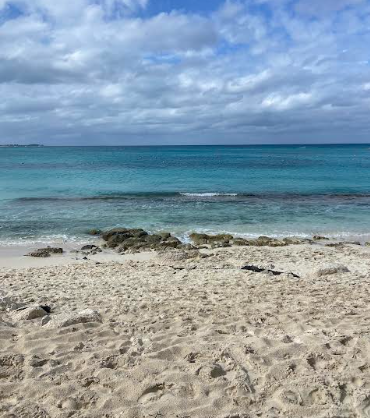During the holiday season people head to the stores to buy their friends and family gifts, but the sustainability of these packaged products is detrimental to the environment, coming with loads of trash from wrapping paper.
There are many ways to celebrate sustainably by exploring thoughtful gifts and eco-conscious wrapping alternatives that spread joy without a heavy ecological footprint.
AP Environmental Science teacher Mrs. Mellissa Smith claims that as Christmas draws near, people can try to reduce waste by making mindful decisions of what they’re buying and the packaging it comes in.
Something Smith does is, “reuse my paper gift bags over and over again, while sometimes giving homemade items.”
Examples of these hand-made gifts are loaves of bread she would give to her grandparents growing up and treats such as fancy jellies along with other types of food for her family.
AP Environmental Science student Ellen Pan crochets stuffed animals as gifts during the holidays to be more sustainable.
Pan states, “You could recycle leftover stuffed animals to make new stuffed animals.”
This eco-friendly gift is not only affordable, but convenient for people with lots of old stuffed animals or pillows.
Hand-made gifts provide heartfelt creativity towards loved ones during the Christmas season, while being eco-conscious.
According to nytimes.com , during the holiday season people throw away 25% more trash than usual, with over millions of extra tons of garbage each week. Disposables have the greatest potential to harm the environment, wildlife, and humans by contaminating natural resources.
Pan emphasizes this by stating, “Many people shop online during the holidays and everything comes in plastic bags or cardboard boxes.”
However, she reuses cardboard boxes, gift bags, and tissue paper. The cardboard boxes can be used as storage for christmas gifts, and be covered in recyclable wrapping paper.
Smith notices that during the holidays, “wrapping just ends up being discarded. Plain paper can be recycled, but paper that has glitter or sequins can’t be recycled and you as a consumer can choose what you’re recycling.”
She also saves money by purchasing a reusable grocery bag which is typically $0.99-$10 to hold gifts she purchases for her family and friends.
By reducing the amount of trash used during this holiday season, and adding a touch of personalization to presents, each gift can turn into a meaningful and eco-conscious gesture.
Embracing sustainable choices in gift-giving and wrapping alternatives extends this holiday love to the planet, fostering a spirit of eco-friendly joy.









